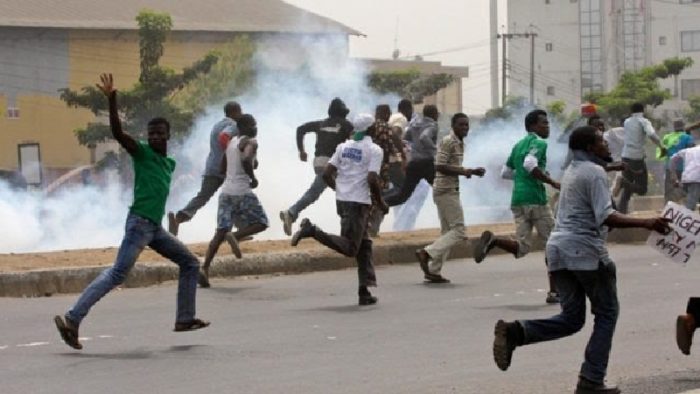More than any other time, the lives of Nigerian citizens in the North, especially the rural dwellers is in utter disarray, disfigured by Boko Haram and bandit attacks as well as communities being forcefully occupied and controlled by kidnappers. From the Nigerian civil war till date, the country has to certain extent, effectively managed urban banditry; but as it is now, rural banditry is doing the greatest damage ever. Prolonged educational and economic neglect of these communities by successive governments at all levels has made the rural settlements highly susceptible to invaders; who come from within and from neighbouring countries. These invaders use money and other temptations to entice young rural dwellers into crime; sometimes forceful recruitment is employed.
Daily, more youths in the ‘kidnapping infested rural communities’ are picking interest in kidnapping, as the ‘business’ is becoming more profitable, highly organised and sophisticated. Threat to life and sometimes, youthful exuberance favoured by ecstatically high level of illiteracy makes the rural settlement a cheap and easy recruitment centre for kidnappers, bandits and insurgents.
In many affected communities, especially in the North-west, the elites, the wealthy and other influential persons have been unable to unite and agree on a blueprint that will serve as alternative and support to the fight against banditry and kidnapping. Many of such persons hide in cities, while their relatives are been maimed in the rural areas. Unlike the rural dwellers that have, at least created semi-armed groups as a contribution to the fight against this menace; many of us in the cities have adopted prayers as our only contribution to the battle against this peril, while we can do more. For now, prayer alone has not yielded the desired effect, probably due to our inability to marry our human intellectual capacity and prayers. This is unlike the lower class and uneducated citizens that have sacrificed their lives by volunteering to serve as members of these semi-armed civilian groups with no monthly salary. When the bandits finish ransacking the rural settlements, the next target is well known to us all.
In addition to verbal condemnation of such attacks and prayer for the intervention of the Almighty, you and I can use our intellectual capacities to develop a system that will support victims, those on the battle field and our governments in the fight against insurgency, banditry and kidnapping. This can be accomplished by the use of a comprehensive psycho-social remodeling approach. This approach should involve a robust system that requires intellectuals with sound understanding of the Nigerian rural life and great interest in the unfolding events. This should include: rural sociologists, rural extension personnels, veterinarians, human medics, the Miyetti Allah group, religious leaders, retired top security personnels, concerned school teachers, psychologist and concerned journalists among others. These individuals should be brought to a round table to come up with a correctional strategy that will complement the use of guns and other weapons as demonstrated by the Nigerian armed forces in the fight against banditry and kidnapping.
Under the support of elders and traditional rulers in the affected communities, the psycho-social remodeling should centre on awareness creation among perpetrators on the danger associated with the crime. The perpetrators and those with potentials to be coopted must be reached through all necessary means, including radio, television, social media and one-on-one contact in formal and informal gatherings; using any language they will understand best. They should be made to see the need to improve or redeem their decaying ethnic and religious image in the general public. The aim is to prevent new communities and vulnerable youths from picking interest or being cajoled to join banditry and/or kidnaping. To prevent more youths from picking interest in violence, this team must consider reconciling warring groups, especially as it has to do with crop farmers-herders clashes. They must convince the warring parties to cease hostility and embrace peace. For if we have forgiven one another and invested in peace two days ago, none would have been killed yesterday. Sometimes it could be quite difficult, but no decision can be better.
Provision of food, shelter and medical support to victims must also be taken up by this team. With the support sincerely provided to victims without bias, team members can fit properly as negotiators for lasting peace to reign. The retired top security personals in the team should be able to wade into the internal issues within and between the security agencies, including: poor welfare of soldiers, complaints of inadequate supply of weapons to soldiers, lack of prompt response during attacks, disagreement between the various security agencies during joint operation, among others. This pressing issues can be discussed with the governors, heads of the security agencies or the president of the country, as the case may be. The role of religious leaders in this remodeling cannot be over emphasised. In the first place, inability of religious leaders to extend the delivery of religious knowledge to rural communities, but stay in cities and towns where the rate of illiteracy is very less is the major reason we are in this mess. Vigorous preaching and teaching of religious virtue must commence immediately in our rural communities.
Mechanisms must be put in place to prevent a scenario where criminals control a rural community and use such community to perpetuate organised crime by instilling fear in the minds of rural dwellers. Susceptible rural dwellers must be reminded of their fast fading socio-cultural, religious and agricultural economic values. Parents must be made to re-establish the family values that rural communities are known for, and take full responsibility of making their wards better citizens. The issue of parents given birth to large number children that eventually become kidnapers and bandits must be addressed; probably by adopting an acceptable and efficient child spacing programme among families.
Rural dwellers must be made to recall the important position they occupy in ensuring everyone has a nutritious meal. The youths especially, must be made to see the huge wealth they could make lawfully, through agriculture without the need to always be on the run. They must be made to know that unlike in the past, there is great potential wealth in agriculture, only waiting to be harnessed. As it is with social empowerment programmes in urban communities; youths in rural settings must be supported to make their lives better. Those with urgent need for such support are the rural dweller whose cattle have been rustled and crop farmers whose farm lands have been destroyed by herders. This team and the government should develop novel and more applicable methods of tackling the age-long crop farmer-herders clashes.
While the free flow of light and heavy weapons may explain the current killings, the rots and errors in our family system produced the youths that use the weapons. It is high time the citizens of this country realise that the killing is spreading and the victims of today were living happily yesterday. The government and the citizens must take measures to slowdown the rate at which more youths are lose to the crisis, sometimes in the name of ‘self-defence’. The usual pattern had been from self-defence to kidnapping or banditry. The roles the citizens can play do not require guns and will go a long way in checking the crisis. The fight should not be left only to those using guns and weapons. The victims and sometimes the warring groups may understand the civilian language better. It may be perceived to be vague and difficult, but efforts of non-governmental organisations in creating awareness on social vices cannot be over emphasised. The human intellectual knowledge is in the cities where citizens hide in grief and anxiety, while the wild fire is burning towards the cities. It is our intellectual knowledge that is needed to stop more youths from joining kidnapping and banditry not just the guns.
Dr. Habibu is a lecturer with Ahmadu Bello University, Zaria, Kaduna State, Nigeria and can be reached via [email protected]











